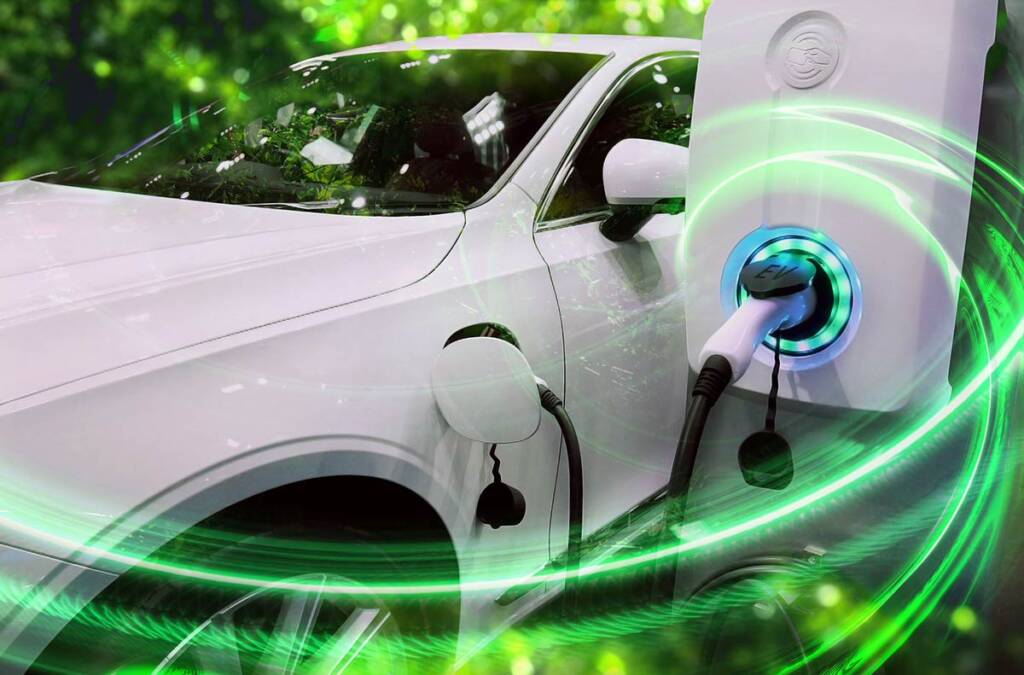It’s an important question — and one we often hear from fleet managers, which is why we’ve created this guide to detail the answer.
As electric vehicles become increasingly popular options for fleets, charging time is a crucial component to maximizing your fleet efficiency — and rightfully so. Following best practices when charging your EVs will have a positive impact your battery’s overall health and reduce unnecessary business delays, avoiding negative impacts to your bottom line.
In this guide, we’ll address the average times it takes to charge an electric vehicle, common factors that affect charging times, and steps you can take to charge your EVs more efficiently.
Average EV Charge Times
The time it takes to charge an electric vehicle will depend largely on the size of battery and charging type. Let’s compare the three levels of charging and average time for each.*
| Charging Type | Where They Are Used | Charging Overview | Average Ranges Per Charging Hour |
| Level 1 | This type of charging is typically for personal use. EV owners simply plug their charging cable into a standard wall outlet. | It will take 40–50 hours to charge from empty depending on the model and how many kWh the battery is rated; 5–6 hours to charge a Plug-In Hybrid (PHEV) from empty. | 2–5 miles |
| Level 2 | Level 2 stations are the most common charging stations at workplaces. With proper management of vehicles, each Level 2 connector is capable of charging up more than one vehicle over a 24-hour period. | Commonly installed for home and workplace use. Can charge a BEV from empty in 6–12 hours and a PHEV from empty in 1–2 hours. | 10–20 miles |
| Level 3 | Also known as direct current fast charge (DCFC), these types of chargers are available in some public depots. | Level 3 chargers provide the fastest charging speeds, topping off a BEV up to 80% in 20 minutes–1 hour. PHEV charging ports are not compatible with fast chargers. | 180–240 miles |
*Data sourced from U.S. Department of Transportation.
Factors That Affect Charging Times & Efficiency
Not every electric vehicle battery and charging experience is the same. Here are the most common factors that will affect EV charging times:
- Which charging type you’re using. Level 1, Level 2, and Level 3 systems all charge at different rates.
- The size of the battery. If you have a larger battery — which is measured in kilowatts per hour (kWh) — it will take longer to charge your vehicle.
- State of the battery. Expect a completely empty battery to take more time to charge versus one that still has some charge left.
- Maximum charging rate of the vehicle and maximum charging rate of the charger. These rates are both dictated by the vehicle and charging equipment manufacturers.
- The weather and environment. For example, lower temperatures can lengthen charging time.

Tips for Charging EVs Efficiently
To ensure the batteries of your electric vehicles reach their full potential, keep these important tips in mind:
- Avoid fully discharging your EV’s battery. Instead, opt for using up 80–90% of a battery before charging. Fleet managers can charge EVs every night — just not to 100%; keep in mind that 80–90% is the best way to maintain the health of the battery.
- Precondition your battery. Preconditioning refers to warming up an EV battery to normal operating temperatures so that it can charge more quickly. Avoid trying to charge a cold vehicle as it is harder on the battery and will take longer to charge since the battery needs to be conditioned prior to charging.
- Maintain a heated or well-insulated depot, if possible. This will naturally lower the energy needed to precondition your EV battery.
- Be mindful of the weather conditions. Weather is an important factor in maintaining electric vehicle battery efficiency. Exposure to extremely hot or cold temperatures can affect the battery’s operating range.

Popular EVs & Charging Details [Comparison Chart]
While there are many different types of electric vehicles available, here is a quick snapshot of some of the most popular makes and models. Looking for even more information? Check out our Fleet Electric Vehicle Database.
| EV Make & Model | Segment | Electrification Type | Battery Capacity
(kilowatt hours) |
| F-150 Lightning | Light Truck | BEV | 98 or 131 depending on the trim level |
| Chevy Bolt EV | Compact Sedan | BEV | 65 |
| Ford E-Transit | Cargo Van | BEV | 68 |
| Tesla Model Y | Intermediate SUV | BEV | 80 |
| XOS Step Van | Full Size Van | BEV | 60 or 120 depending on the model |
FAQs
Q: How long does it take to charge an electric vehicle?
The answer will depend on a number of factors, including the battery size, charging type, state of charge (empty vs. partially charged), the environment, and whether the battery was preconditioned prior to charging.
Q: How can I charge my EV battery most efficiently?
Avoid draining your battery to empty; instead, opt for using up 80–90% of your charge before charging. Preconditioning your battery prior to charging will also help.
Q: How long will an electric vehicle battery last?
The federal government mandates that EV manufacturers warranty their batteries for 8 years/100,000 miles, whichever comes first. In most cases, an electric vehicle can go 100,000 miles before the battery requires scheduled maintenance.
Looking for More Information About Electric Vehicles?
We pride ourselves on being an end-to-end EV provider that can help you develop a strategy for fleet electrification. The EV experts at Merchants will help you secure the right vehicles to match the needs of your fleet and plan an effective charging solution through our ClearCharge™ suite of charging products.
Ready to start your EV adoption journey? Our EV consultants are here to answer your questions. Contact us today for more information on how to get started.

